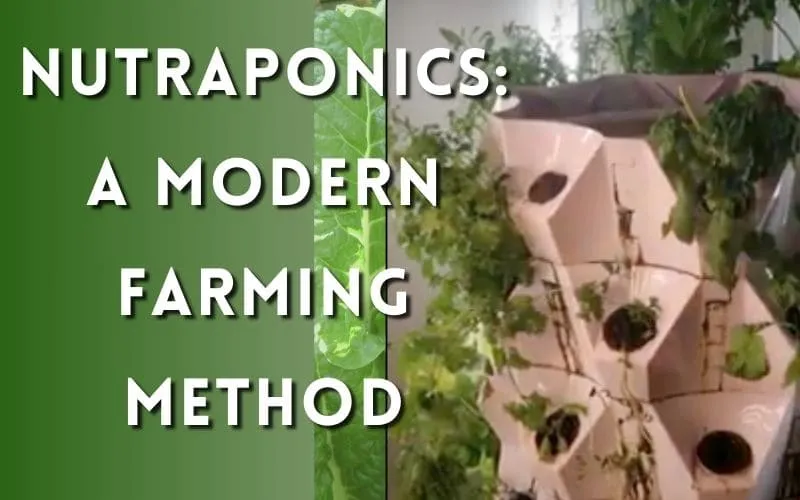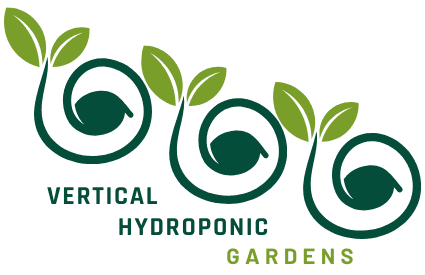Unlocking the Potential of FarmWall Technology

Introduction
Vertical hydroponic gardening has revolutionized the way we grow food by providing a sustainable and space-efficient solution for urban agriculture. One of the pioneering technologies in this field is FarmWall, which introduces a new paradigm for cultivating fresh produce in urban environments. This article delves deep into the innovative FarmWall technology, its implementation, and its potential impact on the future of agriculture.
Understanding FarmWall Technology
What is FarmWall Technology?
FarmWall technology represents an advanced vertical hydroponic system designed to support the growth of diverse crops within a compact, urban space. It integrates hydroponics and modern agricultural practices to enable the efficient cultivation of vegetables, herbs, and microgreens without the need for soil.
How Does FarmWall Technology Work?
The FarmWall technology functions by utilizing a carefully balanced nutrient solution that circulates through the system to provide essential minerals to the plants’ root systems. This closed-loop hydroponic approach ensures optimal water usage and minimizes the environmental impact, making FarmWall an eco-friendly and resource-efficient agricultural solution.
Key Components of FarmWall Technology
Central to the FarmWall technology are its key components, including the vertical planting modules, automated irrigation system, and innovative LED lighting. These components work in harmony to create an ideal growing environment, optimizing plant growth and ensuring consistent crop yields throughout the year.
Benefits of Implementing FarmWall Technology
The implementation of FarmWall technology offers a multitude of benefits, including the efficient use of space, reduced water consumption, and the ability to grow pesticide-free, fresh produce in an urban setting. Additionally, FarmWall technology fosters community engagement and education, promoting sustainable food production and local agriculture.
Implementing FarmWall Technology
Integrating FarmWall Technology in Urban Settings
Integrating FarmWall technology in urban settings presents a transformative approach to urban agriculture, enabling fresh food production within city environments. This integration addresses the challenge of limited space while encouraging sustainable and locally sourced food supplies in densely populated areas.
Adoption and Scalability of FarmWall Technology
The adoption and scalability of FarmWall technology are essential considerations for its widespread implementation. As the demand for sustainable food production continues to grow, the adoption of innovative technologies such as FarmWall can play a significant role in addressing food insecurity and promoting environmental sustainability.
Here are some key aspects to consider in the adoption and scalability of FarmWall technology:
- Urban Integration: FarmWall technology is designed to integrate seamlessly into urban settings, offering a practical solution for urban food production. Its scalability across diverse urban landscapes enables communities to harness underutilized spaces for cultivating fresh produce.
- Community Engagement: The adoption of FarmWall technology fosters community engagement by providing opportunities for educational programs, hands-on workshops, and collaborative initiatives related to urban agriculture. This engagement is crucial for the scalability of the technology as it generates interest and support from local residents and organizations.
- Resource Efficiency: FarmWall technology emphasizes resource efficiency, using innovative vertical growing systems that optimize space, water, and nutrients. The ability to scale these efficient growing systems ensures that the technology can be widely adopted, even in areas with limited resources.
- Technological Adaptability: As advancements in agricultural technology continue to emerge, the scalability of FarmWall technology is closely linked to its adaptability to new innovations. The ongoing development and integration of smart farming techniques and automation further enhance the adoption potential of FarmWall technology.
Cost and Resource Considerations
When considering the implementation of FarmWall technology, cost and resource considerations play a crucial role. By analyzing the economic viability, resource efficiency, and long-term benefits, stakeholders can make informed decisions to embrace FarmWall technology as a sustainable and forward-thinking agricultural solution.
Regulatory and Legal Aspects
The regulatory and legal aspects of implementing FarmWall technology encompass compliance with urban agriculture regulations, zoning laws, and food safety standards. Addressing these aspects is essential to facilitate the seamless integration of FarmWall technology in urban landscapes while ensuring adherence to legal frameworks.
The Future of FarmWall Technology
Advancements and Innovations in FarmWall Technology
FarmWall technology has been undergoing significant advancements and innovations in recent years, revolutionizing the way we approach urban agriculture. The following points delve into the key developments and breakthroughs in FarmWall technology:
- Vertical Farming Integration: New advancements have allowed for seamless integration of FarmWall technology with vertical farming systems, maximizing space utilization and crop production.
- Smart Irrigation Systems: Innovations in sensor-based irrigation systems have enabled precise water management, reducing water consumption and improving crop health.
- LED Grow Lights: The integration of advanced LED grow lights has optimized the growth of plants within FarmWall systems, promoting higher yields and faster growth cycles.
- Modular Design: Advances in modular design have enhanced the scalability and adaptability of FarmWall technology, making it easier to customize systems for various environments and applications.
- Biological Pest Control: The development of biological pest control methods has bolstered the pest management capabilities of FarmWall systems, minimizing the need for chemical interventions.
These developments represent just a glimpse of the continuous evolution of FarmWall technology, laying the groundwork for a sustainable and efficient future in urban agriculture.
Impact on Food Industry and Agriculture
FarmWall technology has revolutionized the food industry and agriculture in numerous ways, paving the path for sustainable and efficient food production. One of the significant impacts of FarmWall technology is the increased crop yield achieved through meticulously optimized growing conditions. By leveraging vertical farming techniques and smart environmental controls, FarmWall technology ensures that crops receive the ideal levels of light, water, and nutrients, resulting in higher yields per square foot compared to traditional farming methods.
Moreover, FarmWall technology plays a pivotal role in the reduction of water usage and environmental impact. Through innovative irrigation systems and precise water management, this technology minimizes water wastage and contributes to water conservation. By utilizing hydroponic and aeroponic growing methods, FarmWall reduces the overall environmental footprint, making it an eco-conscious solution for modern agricultural practices.
An intriguing aspect of FarmWall technology is its seamless integration with urban spaces to promote local food production. By implementing vertical farming systems within urban environments, FarmWall contributes to the decentralization of food production, reducing the need for extensive transportation and storage. This not only enhances food freshness and quality but also supports the development of local economies and community resilience.
Furthermore, FarmWall technology enhances the nutritional value of produce, offering a diverse range of fresh and nutrient-rich crops. The controlled growing conditions and absence of harmful pesticides result in higher nutrient content in the harvested produce. This aspect aligns with the increasing consumer demand for organic and sustainably grown food, positioning FarmWall technology as a pioneering solution in meeting these market requirements.
Additionally, FarmWall technology contributes to improved supply chain efficiency by reducing the distance between production and consumption. This proximity minimizes the time and resources required for transportation, leading to fresher and more sustainable food distribution. Furthermore, the scalability and adaptability of FarmWall technology enable the year-round production of various crops, enhancing supply chain stability and reducing the impact of seasonal fluctuations.
Conclusion
FarmWall technology represents a pioneering advancement in urban agriculture, offering a sustainable and innovative solution for food production in urban environments. As the technology continues to evolve and expand, its far-reaching impact on the food industry, agriculture, and urban landscapes holds promise for a more resilient and sustainable future.




